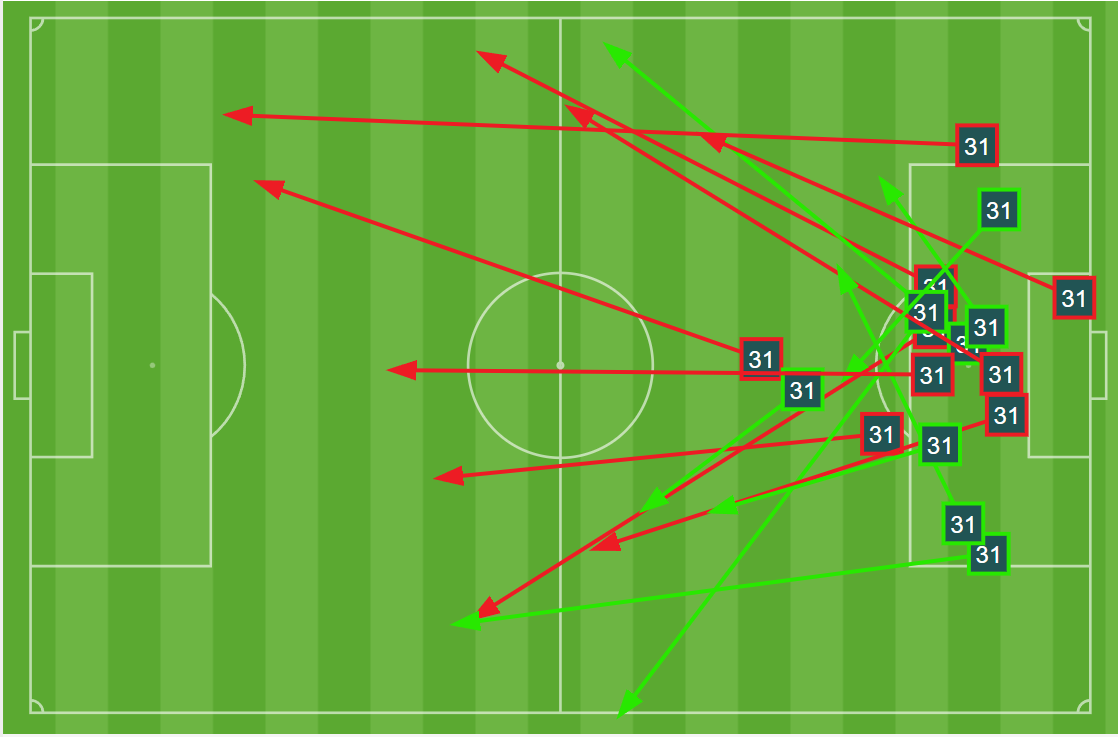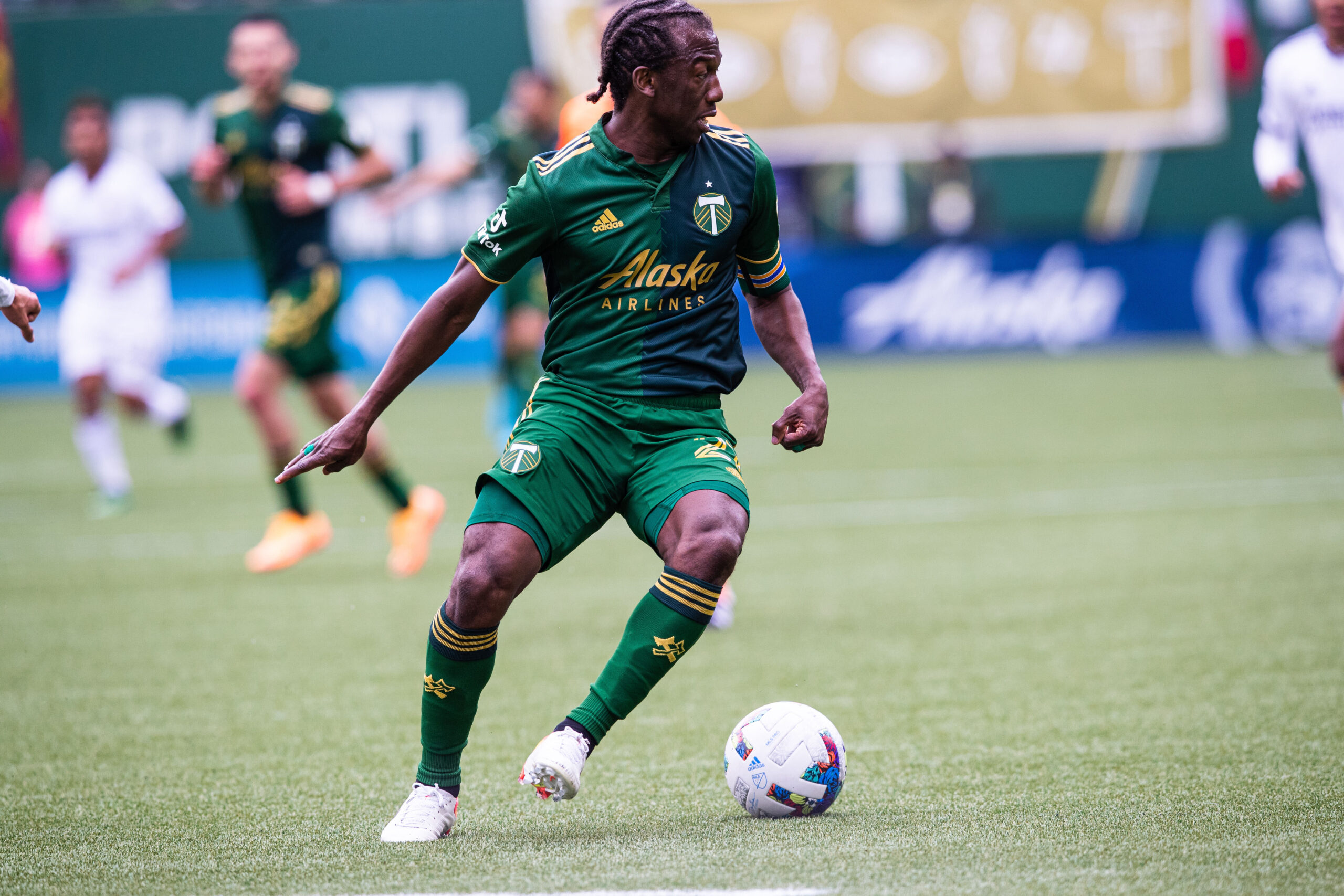Nightmare at Mercedes-Benz Stadium! Atlanta embarrassed the Timbers on Saturday night, trashing them 5-1.
Saying Portland had a bad game would be an understatement. Everything was fine the first minutes after kick-off. Eryk Williamson scored a banger at minute two, and it looked as if the Timbers were about to leave their two back-to-back losses behind.
But then… the referee called Williamson’s goal off due to a teammate’s offside position, and everything went downhill from there.
What could’ve been a dream start away from home ended up being a 90-minute nightmare.
𝙏𝙃𝙀 𝙎𝙌𝙐𝘼𝘿 𝙄𝙎 𝙄𝙉 📜
— Portland Timbers (@TimbersFC) March 18, 2023
▪️ Ivacic makes his 2023 debut 👋
▪️ D. Chara's 337th start ©️
▪️ Ikoba returns 👏#RCTID pic.twitter.com/9jsknveTuK
Back five formation
With a formation of a back five, Timbers head coach Gio Savarese expected to stop Atlanta and, most importantly, keep United’s Thiago Almada at bay.
The score doesn’t lie… or maybe it does. The gap between a depleted Portland and a fully loaded Atlanta was that big, and the visitors were lucky not to have been scored on more.
Portland’s chosen formation has its strengths and weaknesses, as happens with every formation. In this particular case, the space between the center backs and fullbacks is pivotal and can be exploited by the opponent if a team is not deploying it right. That is because the wingers can have more room to go forth, and a team needs to be very disciplined to stop them.
And that’s one of the things that went south with the Timbers on Saturday night.
Notice the huge space that opens up between Claudio Bravo and Zac McGraw. The opening allows Atlanta to find time and lots of space to pass the ball and shoot.
A five-back maybe could’ve stopped Atlanta with the right personnel. Of course, with that formation, it is expected for the fullbacks to go back and forth on the wings. When under attack or when building from the back, they need to stay back and when they have the ball.
Bravo and Juan David Mosquera were going to be key in that regard, but Bravo coming back from injury clearly wasn’t up to the task. Mosquera didn’t do that well, either.
Savarese said at the post-match press conference that he assumes full responsibility for the loss, but he also thought that some players could’ve done better.
Among those players was Bravo. He lost six duels—tied with Nathan with most duels lost—and only won two and had 66.7% passing accuracy, the lowest of the entire backline after the goalkeeper. He made four crosses, and all of them were unsuccessful. Bravo also conceded two fouls and won a yellow card.
In transition
Over and over again, Atlanta put the Timbers under the test with fast transitions that left players out of position and running like hell to go back to defensive formation. This was especially on display in the second half.
“They were dangerous in the moments when we lost the ball and were high up the field. In their transition, [Atlanta United] created so many moments in the first half as well,” said Savarese about this.
Caleb Wiley can't stop scoring!
— Major League Soccer (@MLS) March 19, 2023
The 18-year-old gives @ATLUTD the lead. pic.twitter.com/qG8X3D2H5H
Almada deserves a special mention here. He not only scored a golazo with the filthiest swerve you’ll ever see from a free kick, but he also scored a brace and registered two assists that night.
Almada was a fundamental part of that fast transition to the attack and had Portland’s number all game long. As you can see in the clip above, he assists Wiley after Bravo and Mosquera obstruct each other and lose the ball.
It was 3-vs-3 in this attack. The Timbers should’ve been able to do something more, but they were caught in a fast attack. Mosquera didn’t help much either. He tries to close down Almada but ends up obstructing Bravo, and no one can recover the ball for Portland. In doing so, Mosquera also left the left side of the field totally uncovered, giving Luiz Araújo all the space to add himself to the attack.
Not the best goalkeeping
Aljaž Ivačič started on goal for the first time in the season after recovering from injury.
It wasn’t the best of games for Ivačič who, besides being scored on five times—which wasn’t entirely his fault—had problems distributing the ball. Against Atlanta, he had 51.6% passing accuracy—and 15.4% in the opponent’s half. Of course, that is far from ideal.

Also, this. It is true that Almada’s kick was pretty much unstoppable, but Nick has a point here:
Thats 30+ yards out. Should be max 2 players in wall, theres 4 & Atlanta adds 3. 7 man wall now. GK blinding himself. If theres not a wall I guarantee he saves it. Puts him in the right angle and sees the ball the whole way. Less is more when the free kicks are are at distance. pic.twitter.com/HUN277CTIt
— Nick Rimando (@NickRimando) March 19, 2023
Switching the point of attack
Besides fast transitions, Atlanta added another layer to their offense by switching the point of attack. This is something that worked well in the first half but especially brought results in the second half with Atlanta’s third goal.
First start, first MLS goal.
— Major League Soccer (@MLS) March 19, 2023
Giorgos Giakoumakis opens his @ATLUTD account! pic.twitter.com/xDKhXG1eir
Notice how the Timbers focus on that switching ball to Wiley so much that they don’t even pay attention to Giorgos Giakoumakis, who heads the ball and beats Ivačič.
The last two of Atlanta’s goals were similar in the fact that both goalscorers were marked closely but found space to shoot, nonetheless. Justin Rasmussen came into the match for Bravo and didn’t have the desired impact. He was the one marking Araújo, but Araújo beat his mark easily. At minute 86, something similar happened with Larrys Mabiala while marking Almada.
The Timbers got one back through Tega Ikoba, who beat Atlanta goalkeeper Brad Guzan with a header. This goal was special because with it, at the age of 19, Ikoba became the youngest goalscorer in the team’s history.
Congratulations, Diego Chará!
In the midst of so much negativity surrounding the game in Georgia, there was something to celebrate last Saturday. Diego Chará has always been essential for Portland, and his presence in the midfield is something the team can rely on.
Now, he’s not only a club legend but also an MLS legend after becoming the only field player to amass over 30,000 regular season minutes, all of them played with the Timbers.
https://twitter.com/TimbersFC/status/1637531665995280384?s=20

